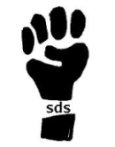Clarifying the term "antipolitics"
If there’s one thing I really hate, it’s being misunderstood. And an excellent post by Brad Spangler about revolutionary strategy and tactics has raised an alarm in my head. Is my habitual use of the word antipolitics, a term that dates as far back in this movement of ours as Karl Hess’s seminal 1968 essay “The Death of Politics,” being misinterpreted? Like many radicals, I often use the word as a shortcut to express my rejection of party and electoral politics (i.e., voting) as tactically inconsistent with libertarian philosophy and goals. But “antipolitics” may imply that I’m opposed to all political action. And that’s simply not true. As Samuel Edward Konkin III pointed out more than three decades ago (New Libertarian Notes, No. 23, July 1973):
“I do not wish libertarians to become anti-political, but rather anti-party. Politics includes revolution, coup d’etat, voting, assassination, philosophic ruminations on whether the State leadership should be changed or abolished, communicating this to others, demonstrations, agitation, propaganda, and even graffiti.
“Parties are a very small fraction of Politics, and can not only be dispensed with, a sustained attack on them will bring more libertarians into more productive political activities. ...
“The LP only pursues votes, eschewing the other 57 varieties of political activity. That leaves a lot of avenues remaining unexplored.”
Until a better word comes along, I’ll continue to use “antipolitics” as a verbal shortcut in the ongoing war against political parties and state elections. But I’m certainly open to suggestions for a less foggy term. Anyone?
Labels: leftlibertarian, politics













9 Comments:
Thanks for the link, Wally. I don't think it's being widely misinterpreted.
I do think we need to stress that agorism fits in with the growing trend toward "horizontalism" on the broader radical left globally -- the understanding that radical movements should not be interested in taking state power, even if they are not even explicitly anarchist. As Proudhon observed "The social revolution is seriously compromised if it comes through a political revolution".
Our conception of revolution doesn't include taking state power because we don't want anybody to have state power -- not even us. The anti-political position is thus essential for us as agorists to adhere to. We can certainly operate with the context that the electoral efforts of other arms of the broader libertarian movement might create, though. It'sd all about recognizing different roles, IMO.
Chaosist?
;-)
As someone for whom words and their meanings have always been important, I understand your concern.
I wonder if we can't get too caught up worrying about it, though, and dilute not only our efforts but our message through constant redefinition and coining of terms?
Isn't it your experience, as someone who has been reviewed and had public writings commented upon, that some people will always misunderstand, no matter how clearly you express yourself?
It won't succeed as a matter of fact, that's exactly what I think.
Quite worthwhile info, thank you for the article.
Thanks so much for the article, quite useful material.
I think that this post is the best that i have read.
Hello, i would like to read more about this interesting topic, i think that it has good information, besides, this post help in a personal project
first rule of anarchism...if you see somebody taking charge you will be expected to beat them and i am against ALL politics as soon as they fall out someones mouth politics is a tool for division fuck it all peace
Post a Comment
<< Home